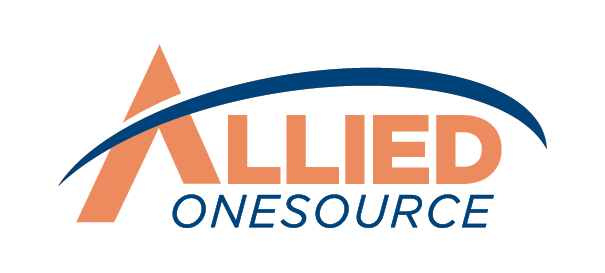Weighing Your Decision: 4 Key Factors Before Switching Jobs
Feeling stuck in your current role? Many professionals question whether it's time for a change. Whether it’s limited growth opportunities, a lack of work-life balance, or simply the need for a fresh start, deciding to switch jobs is more than just a response to frustration—it’s a critical choice that can shape your future.
Before you quit, it’s crucial to understand what’s driving your desire for change and evaluate the key factors that will impact your career and personal life. This way, you can make a well-informed decision that aligns with your long-term goals and positions you for professional success.
Reasons Why People Change Jobs
Employees often change jobs for many reasons. Some common reasons include:
Career Development
It’s common to quit your job because you want to progress in your career. Maybe your current workplace isn't challenging you enough, or you've exhausted all options for progressing.
Work-Life Balance
Flexible work hours, remote work options, and supportive company policies can significantly impact your well-being and job satisfaction. It might be time to explore other opportunities if your current role doesn't offer the necessary balance.
Proximity and Commute
Long commutes can lead to burnout, while a closer job can free up valuable time for personal activities. Many professionals consider proximity a major factor when deciding whether to stay or switch jobs.
Work Environment and Culture
Your workplace culture can make or break your job satisfaction. A toxic or misaligned office environment might push you to seek a company that matches your values and work style better.
Compensation and Benefits
While salary is a significant factor, the overall benefits package—including health insurance, retirement plans, and other perks—also plays a critical role. If you feel under-compensated or undervalued in your current role, exploring better offers elsewhere might be the next logical step.
Read More:What's Holding You Back? 5 Barriers to Career Advancement and How to Overcome Them
Key Factors to Consider Before Switching Jobs
Here’s what you should keep in mind.
1. Professional Development
Your job is more than just a paycheck; it's a significant part of your life. Professional development is crucial because it keeps you intellectually stimulated, satisfied, and eager to work. A comfortable, stable job is great, but it can become monotonous without growth.
Ask yourself: Is your current role offering opportunities for growth and learning? Are you feeling challenged and engaged? Many employees stay longer with a company that invests in their career development.1 This indicates the importance of continuous learning and advancement.
So, evaluate whether your current employer supports your growth and their development programs align with your career goals. A company that values and invests in your growth can enhance your job satisfaction and loyalty.
Read More:Disengaged at Work? 6 Tips on Reigniting Workplace Motivation
2. Work-Life Harmony
Balancing your work and personal life is key to maintaining overall well-being and job satisfaction. Consider these questions: Is your current job allowing you to manage personal responsibilities alongside your work duties?
Does your employer offer flexibility, such as remote work options or adaptable hours? A supportive workplace that promotes work-life harmony can significantly reduce stress and enhance your quality of life.
Assess whether your job allows you to manage your responsibilities alongside your work duties without feeling overwhelmed. A company that promotes work-life harmony is likely to contribute positively to your well-being and can be a strong factor in deciding whether to stay.
3. Compensation and Benefits Package
While professional development and flexible scheduling are valuable, let’s not forget a fundamental aspect of working: earning money. Your salary and benefits are crucial to your job satisfaction and overall well-being. Ask yourself: Is your current compensation fair and competitive for your role and experience? Does your benefits package support your financial needs and provide security?
However, don’t focus solely on salary. A strong benefits package includes health insurance, retirement plans, and other perks contributing to your financial stability. Evaluate whether your current employer offers a compensation package that fits your needs and matches industry standards. If your pay does not meet your expectations or the market, it might be worth discussing with your employer.
Read More:9 Wellness Initiatives for a Vibrant and Energized Workforce
4. Company Culture and Values
Beyond salary, benefits, and career opportunities, workplace culture and values are essential in determining job satisfaction. Consider whether you genuinely enjoy your environment and whether it aligns with your values. Does the organizational culture resonate with you? Are you comfortable and engaged with the people you work with?
A supportive and positive office culture can significantly enhance your job experience. Feeling disconnected from the company’s values or finding the environment too rigid or unwelcoming can impact your overall job satisfaction. Working in a place where you feel aligned with the company’s mission and enjoy the atmosphere makes a significant difference in your daily experience.
Evaluating the cultural fit and ensuring that you’re working in a place where you feel comfortable and valued is crucial. While salary and career growth are important, finding a company environment that supports your well-being and professional values can positively impact your job satisfaction.
5. Job Security and Company Stability
Do you feel stable in your current role? Does the company’s future appear secure? Are you confident in the company's stability and your job security? Are you worried about frequent layoffs, sudden changes, or being overworked?
A stable work environment helps you focus on your responsibilities without the stress of potential job loss or excessive demands. Evaluate the company's financial health, growth trajectory, and reputation within the industry. A strong and stable organization provides a secure foundation where you can thrive without the anxiety of potential instability or unreasonable expectations.
Ensuring you feel secure and confident in your employer's stability is crucial for maintaining a positive and productive work experience. A reliable job environment supports your career goals and personal well-being, allowing you to concentrate on your work with peace of mind.
Mistakes to Avoid when Considering a Job Switch
When switching jobs, it's important to avoid common pitfalls that can derail the process. Some mistakes to steer clear of include:
- Making a hasty choice without thoroughly researching the new company and role.
- Failing to negotiate your salary and benefits can lead to dissatisfaction later.
- Underestimating the impact of a location change on your lifestyle and finances
- Neglecting to consider how the new job aligns with your long-term career goals
- Burning bridges with your current employer by leaving abruptly or badmouthing the company
- Overlooking the emotional and psychological impact of a job change on your well-being
- Neglecting to maintain connections with colleagues and industry contacts. This can limit future opportunities.
- Ignoring red flags during the interview process, such as high turnover or a negative work culture
Read More:Top HR Generalist Interview Questions and Sample Answers
Being mindful of these potential pitfalls and weighing your options critically, you can make a decision that sets you up for long-term success and satisfaction in your career.
While changing jobs is a significant decision that needs careful consideration of these factors, remember to trust your instincts while relying on data and research to guide your decision-making process. With a thoughtful approach, you can begin a new chapter in your career that's fulfilling and rewarding.
THINKING ABOUT A NEW JOB? ALLIED ONESOURCE CAN HELP
Whether you're looking for better pay or haven't found the right employer,
Allied OneSource can assist you in changing jobs. Our experienced team of recruiters can assist you navigate the job market, identify opportunities that align with your goals, and provide personalized advice to support your career journey.
Contact us today to learn more about how we can help you find the right fit for your skills and aspirations.
Reference
1. Keswin, E. (2022, April 5). 3 Ways to Boost Retention Through Professional Development. Harvard Business Review. Retrieved July 25, 2024, from https://hbr.org/2022/04/3-ways-to-boost-retention-through-professional-development











